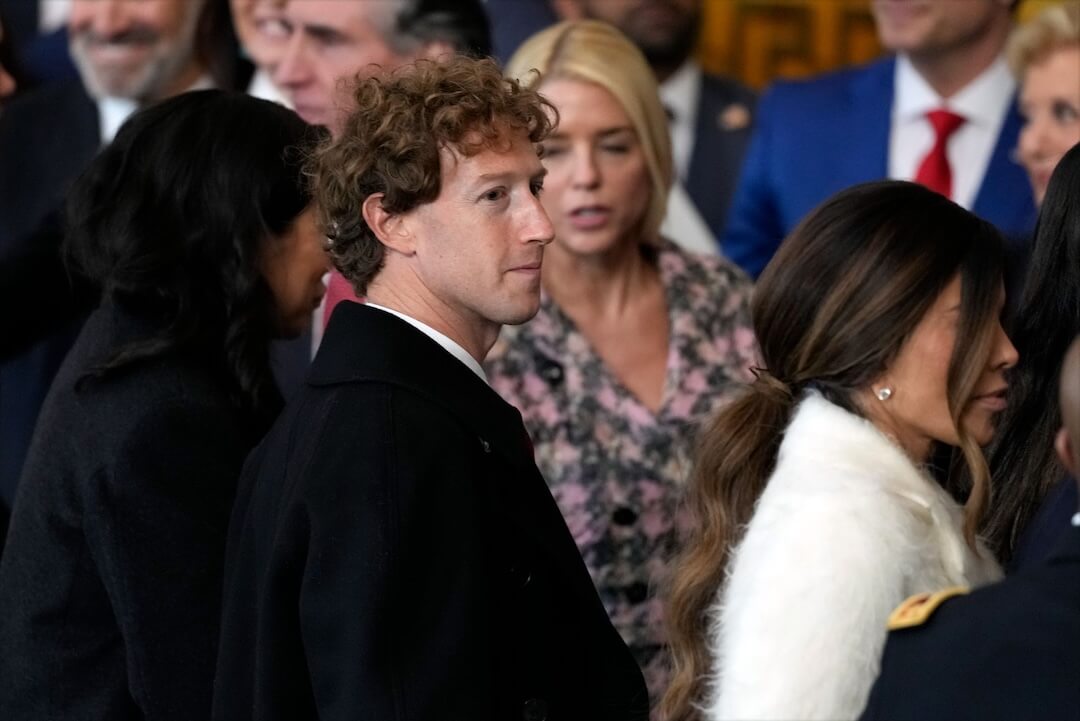The Poynter Report is our daily media newsletter. To have it delivered to your inbox Monday-Friday, click here.
Good Monday morning. Hope you’re back on schedule after turning back the clocks. This weekend was a special one at the Poynter Institute as we hosted our annual Bowtie Ball, where we recognized two journalism giants.
Katie Couric dazzles at Poynter’s Bowtie Ball
It might have been the most famous question that Katie Couric ever asked during her distinguished journalism career. In 2008, Couric asked vice presidential hopeful Sarah Palin what newspapers and magazines she read to get her news.
So when I sat down with Couric on Saturday, I started with the same question: “So, Katie, what do you read to get your news?”
It was a serious question. I wanted to know. But Couric laughed and jokingly gave the same answer Palin did: “Any of them, all of them.”
Couric was in St. Petersburg, Florida, over the weekend to receive the 2019 Medal for Lifetime Achievement in Journalism at the Poynter Institute’s Bowtie Ball. In addition, Los Angeles Times Executive Editor Norman Pearlstine was honored with the Distinguished Service to Journalism Award. I’ll get to the special evening in a few moments, but back to Couric.
Seriously, where does she get her news these days?
“I read a lot on my phone,” she told me. “I still actually get a print copy of The New York Times. I do still enjoy seeing the layout. Because I think the way a paper is laid out tells you a lot about editorial priorities.”
She also reads newsletters, Twitter and Apple News. She listens to NPR. But the journalist best known for a career on television actually doesn’t watch much TV news. She will occasionally watch the network evening news, but that’s about it. And on the rare occasions she does watch cable news stations such as CNN, Fox News and MSNBC, what does she think?
“I think, ‘Wow, we live in two different Americas,’” Couric said.
I asked her what advice she would have for a network news president these days.
“It’s a very dicey proposition because people are looking for affirmation, not information,” Couric said. “When you’re not taking a particular position, it doesn’t produce the manufactured outrage that is successful in cable news. I also think networks are serving red and blue states and not one or the other. So they’re kind of the purple of news providers and they don’t want to alienate people who like President Trump, who don’t want to him to be called racist or some of the things described as racist. And yet I think journalists feel a moral obligation … it’s a very tricky time.”
But it’s clear what happens when cable news networks report with bias.
[the_ad id=“667826”]
“I think they’re increasing the polarization, there’s no question about that,” Couric said. “But I think a lot of places are — not just Fox and MSNBC and CNN. A lot of social media is an echo chamber. … There aren’t conversations going on. There are just fights going on on social media or in the comments section. Or just Twitter in general. It’s just a very toxic, divisive time in our culture.”
As Poynter president Neil Brown introduced Couric on Saturday night, you were reminded just how incredible her career has been — highlighted by co-hosting the “Today” show, breaking the glass ceiling by becoming the first woman to solo anchor the evening news when she led “CBS Evening News” from 2006 to 2011, and reporting for “60 Minutes.”
And despite receiving the Poynter honor for lifetime achievement, her career is far from over. She has a newsletter called Wake Up Call, a podcast and her own media company — and she is working on her memoir. At 62, she has managed to remain relevant in the journalism world.
“I think because it’s harder now to become a household name and I think because I’ve been doing it for so long that I think people know I’m fair-minded and trustworthy,” Couric said. “I hope (people) see me as a reasonable voice and someone who also is interested in hearing other people’s perspective because I try to use my platform to — when I can — just hear people out and I encourage them to be respectful. … If we could facilitate more reasonable conversations and find that Venn diagram where we do overlap and agree on certain aspects of issues then we could actually make progress.”
Poynter’s special night
As I mentioned, the Poynter Institute had its annual Bowtie Ball on Saturday, honoring Couric and Pearlstine, as well as recognizing the Pulitzer Prize-winning work of the South Florida Sun Sentinel for its coverage of the mass shooting at Marjory Stoneman Douglas High School in Parkland, Florida, on Feb. 14, 2018.
More than 500 were in attendance to see Couric interviewed on stage by Poynter Senior Vice President Kelly McBride and Pearlstine interviewed by Poynter President Neil Brown.
[the_ad id=“667872″]
Norman Pearlstine and President Trump
Pearlstine talked serious journalism, especially the state of local news, during his interview with Brown, but also showed off his humorous side. Brown asked Pearlstine about his social relationship with Donald Trump going back to the 1980s.
“He came to my third wedding,” Pearlstine said. “But he didn’t invite me to his.”
Pearlstine said Trump’s views on the press are more complicated than his “enemy of the people” comments.
“The press is his cocaine,” Pearlstine told the crowd. “He’s addicted to it. He can’t get enough of it, and that presents real challenges in terms of knowing how you cover him.”
Read our full story here.
[the_ad id=“667878”]
HuffPost gets personal in redesign
A look at the new homepage of HuffPost. (Photo courtesy of HuffPost)
HuffPost is launching a site redesign starting this morning. In a letter to readers, HuffPost Editor-in-Chief Lydia Polgreen writes that the redesign will showcase a wider variety of stories, including, as always, the latest breaking news from the White House and across the country. But, Polgreen goes on to write, “You’ll also find a lot more stories about what’s happening at your house: raising good kids, finding a therapist you can afford, managing your student debt. We know the day to day challenges of life are serious news too, and we are here to help.”
To that point, HuffPost is launching a new tagline: “It’s Personal.”
“What unites our journalism is our dedication to serving you, and putting your life at the heart of our journalism,” Polgreen wrote. “Welcome to the new HuffPost, where every day, it’s personal.”
What to make of Sean Duffy
My favorite Sunday morning news show conversation was on CNN’s “Reliable Sources,” where host Brian Stelter asked a panel of journalists whether CNN was doing the right thing by having pro-Trump analyst Sean Duffy on the payroll as a contributor. That’s a hot question because since being hired last month, Duffy has repeated debunked conspiracy theories, which have been called out in real time by CNN anchors. I wrote about this last week, and felt that CNN, not Duffy, is to be blamed for anything Duffy says on the air. The network knew his reputation before hiring him and it is getting exactly what it should have expected.
New York Magazine’s Irin Carmon made the best point when she told Stelter, “I just think giving somebody a title and the paycheck legitimizes them as just another point of view.”
He’s still got chops
Ted Koppel. (AP Photo/Tina Fineberg)
It’s good to see Ted Koppel still showing off his elite journalism skills. In a compelling 13-minute piece for “CBS Sunday Morning,” Koppel told the story of a race controversy at Oberlin College in Ohio. Students protested a local bakery/store and accused it of racism after a black student was arrested there for shoplifting and using a fake ID. The student eventually pleaded guilty to attempted theft. A defamation lawsuit by the store alleged that the college aided and abetted the protest and led to what the store claimed was a 50% loss in sales. A jury found Oberlin responsible and awarded the store $31.5 million. The school is appealing.
Koppel, 79, was brilliant in interviewing Oberlin College president Carmen Twillie Ambar, who was not president at the time of the incident.
“What is your reputation worth?” Koppel asked Ambar. “You’re a very distinguished academic. What is your reputation worth?”
Ambar said, “My reputation is important.”
“It’s worth a lot, isn’t it?” Koppel continued. “I mean, if your reputation was destroyed overnight, you could hardly put a price on that, could you?”
Ambar said, “Well, I certainly believe that reputations are important. But here’s what’s also true, and it’s the jury system that we have, right? And the legal system that we have, that we go through the legal process that makes that determination. And what the institution has said is that we believe that this determination was excessive.”
Were Ambar’s answers satisfactory? That’s up to you to decide. Koppel’s questions? Exceptionally good.
‘A monumental achievement’
Here’s the cover of The Washington Post’s special section out today to commemorate the Washington Nationals winning the World Series. (Photo courtesy of The Washington Post):
Hot type
- Speaking of the Post’s World Series coverage, the paper will put out a 128-page commemorative tribute book called “Fight to the Finish: How the Washington Nationals Rallied to Become 2019 World Series Champions.” It will be published by Triumph Books and is scheduled to be released Wednesday. You can order the book here.
- A family makes the heartbreaking decision to take their loved one off life support after a drug overdose. But the man taken off life support was not actually their loved one. ProPublica’s Joe Sexton and Nate Schweber with “The Wrong Goodbye.”
- The rise and fall of Deadspin, written by the man who created Deadspin — Will Leitch.
Have feedback or a tip? Email Poynter senior media writer Tom Jones at tjones@poynter.org.
Upcoming Poynter training:
- Navigating Ethical Dilemmas: Connecting Core Values and Journalistic Action (online seminar). Starts Nov. 10.
- Pay Attention: Legal Issues and Your Media Company (free self-directed course). Available now.
Want to get this briefing in your inbox? Sign up here.








hello,
this is best ever course when I joined and start learning, I got to know too much thing about Poynter that’s really beneficial deal for software this services are also best.